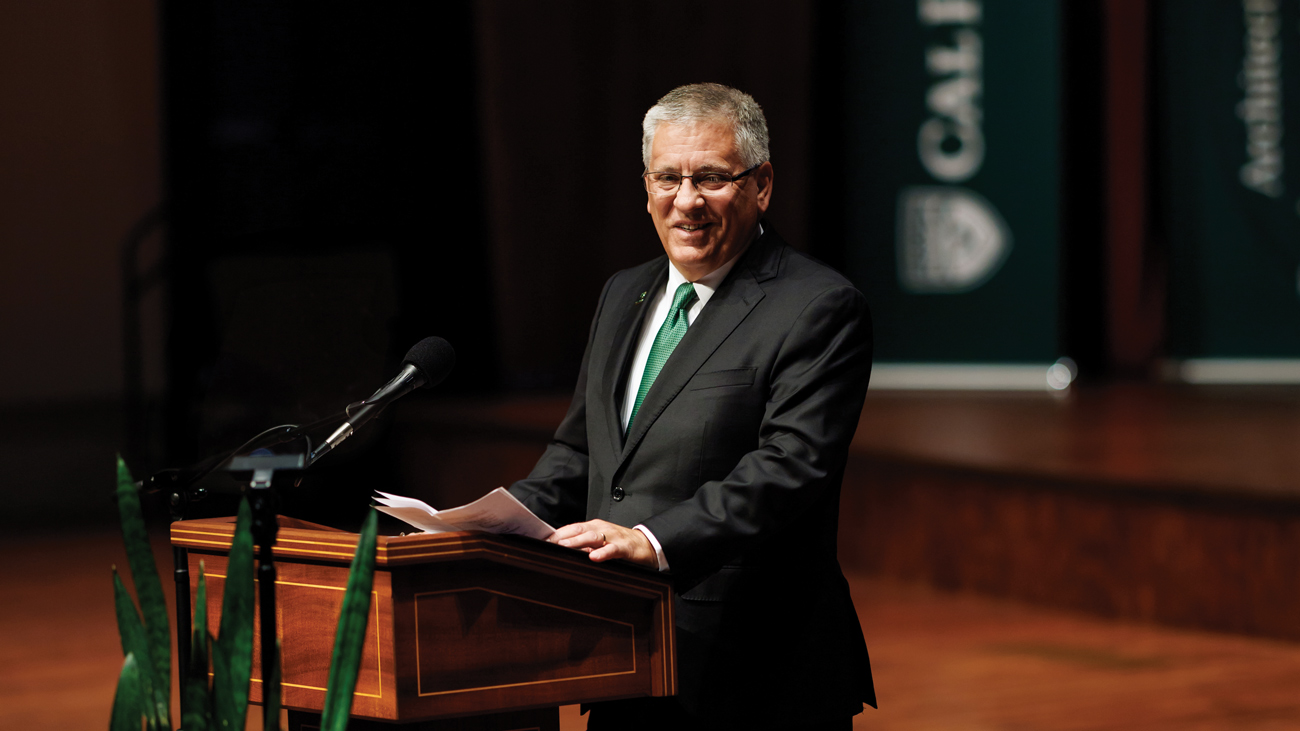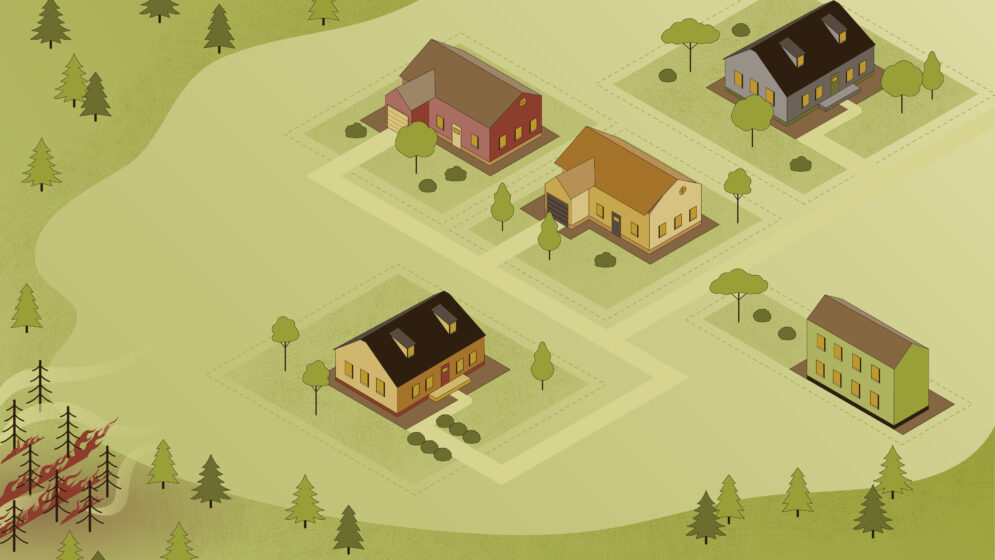The Last Word
The Value of our Mustang Community
President Armstrong on one of Cal Poly’s most crucial assets.
Share this article:

President Armstrong addressing the audience at Fall Convocation in 2024.
This issue of the magazine explores the question of where students find community, especially given the ways that we have become increasingly connected and yet increasingly lonely. The modern university — and Cal Poly in particular — offers a model of an antidote to our contemporary loneliness, a model that is sometimes not fully understood.
At its best, a modern comprehensive university resembles a miniature municipality. We don’t always get everything right, but we always strive to get the fundamentals right. We continue to stand for the principle that every student and every staff member, each of whom comes from their own nuanced backgrounds, has a chance to succeed at Cal Poly. Our campus has made a lot of progress toward supporting a spectrum of experiences our students have, and we should take pride in that. At the same time, we should take pride in being committed to the principles of equality because we know it enriches our learning community from the inside out.
We are never alone in the shared effort to strengthen our collective society. It is a chance to be part of something larger than yourself, and to make friends worth having.
President Armstrong
As an institution of higher education, it is critical that we value healthy debate, dissent and eccentricity. Reasonable, intelligent, well-meaning people disagree both about fundamental values and about how to implement those values in policies. Universities provide a place in which, as a society, we can demonstrate our commitment to reasoned debate by engaging in it. We demonstrate our intellectual humility by acknowledging that people who think very differently than we do may nonetheless be correct, which is why we teach their arguments and o er reasoned responses.
All of that is more work than joining a bowling league, Scout troop or book club, but I believe that what we do is to inculcate lifelong habits of critical thinking and, hopefully, a love of our small community of different people committed to a common approach to life. We learn these habits and dispositions by doing them, day after day, in university housing, in dining facilities, in classrooms and hallways, on athletics teams and when we are waiting in line for our coffee.
Through our commitment to these things, we join a tradition of people who have tried to build institutions like Cal Poly over hundreds of years, as well as the millions who are engaged in the same task today. We tie ourselves to our intellectual forebears as well as to our intellectual heirs, and thus our circle of friends extends over both time and space. In some eras those committed to education have represented a widely-held view, and in others we have been a small minority. Even in some of the darkest hours of human civilization there have been people who worked together to pursue this ideal.
Spending four years at Cal Poly is not just a pleasant way to pass the time or a route to obtaining the credentials necessary to enjoy an upper-middle-class lifestyle — though it is also those things. It is an initiation into the community of learned people that affirms we are never alone in the shared effort to strengthen our collective society. It is a chance to be part of something larger than yourself, and to make friends worth having.
Sincerely,
Jeffrey D. Armstrong
President
Your Next Read
The director of the Wildland-Urban Interface Fire Institute issues a dire warning about dual catastrophes on California’s horizon — and explains what Cal Poly is doing about it.
At the Women’s Mobile Health Unit, students explore the medical field while providing free care to a vulnerable population.




